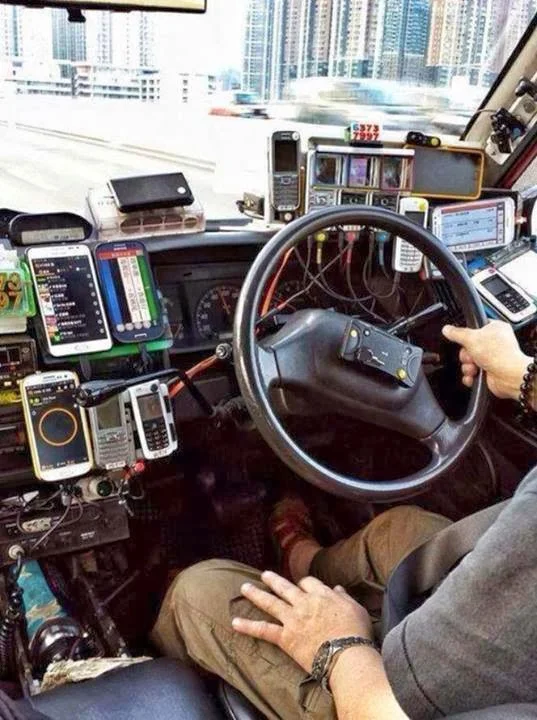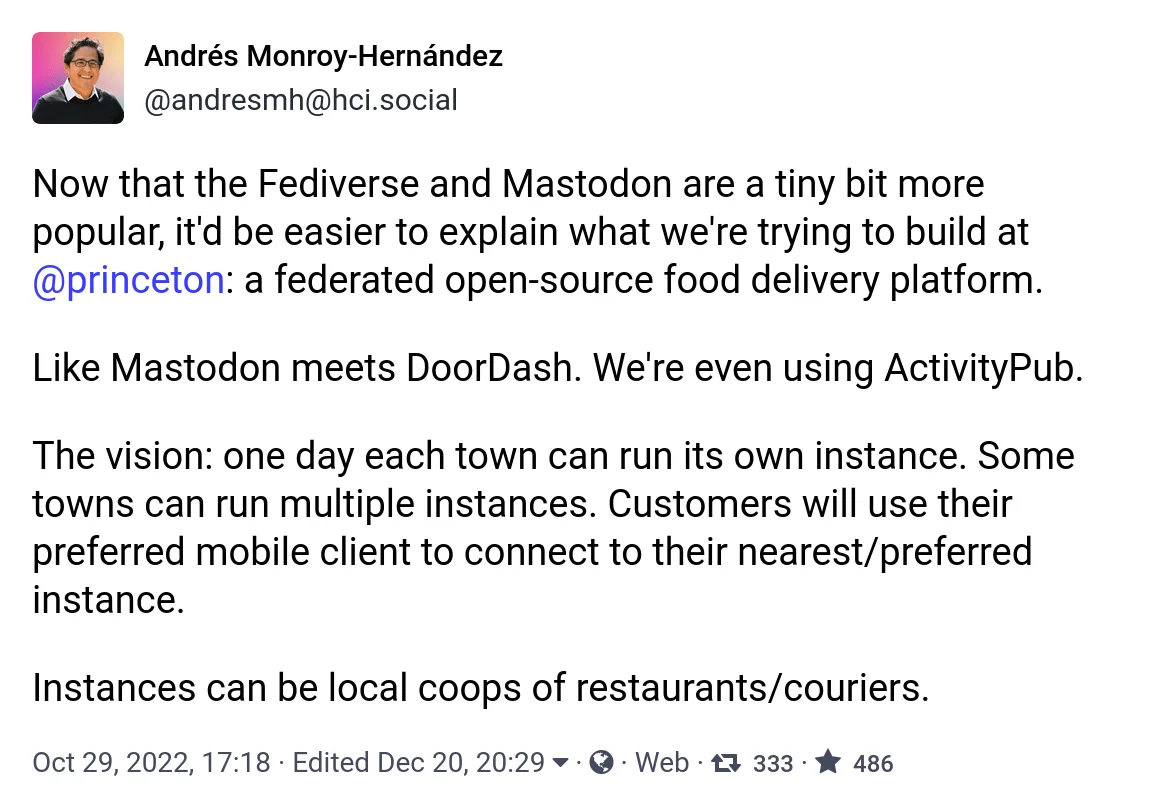What would a decentralised Uber look like?
Uber are undoubtedly a company engaged in extremely dodgy activity. But, on the other had, they're ridiculously convenient.
A few months ago, we landed in a foreign country, opened the same Uber app as we used back home, and booked a cab. It just worked. I didn't need to register for a different version. I didn't need to create a new account. I didn't need to add a new credit card. That's the sort of seamless experience which can only come from a centralised service.
But, hey, we're all moving to a ReDeCentralised Federated Future. Nae king! Nae quin! Nae laird! Nae master! We willna' be fooled again! So let's think about how a decentralised Uber would work.
Broadcast
In the days before mobile phones, we could have used something like CB radio. Broadcast a message to everyone in a few miles saying you want to travel from point A to point B.
Cabbies, or their agents, could reply to you with their availability and prices.
But that puts a lot of work on you to manage all the replies. And you have no idea of the driver rating. And you'll be broadcasting your location to all and sundry.
And, sadly, modern handsets have no concept of a broadcasting in a P2P manner.
Perhaps a little centralisation?
In most parts of the world, taxis are regulated. You don't want rapists, thieves, and murderers driving you home late at night. You want a predictable fare calculated by an honest meter.
So let's say you have an app which knows your location, and send your request to the taxi-regulation-boards which cover your area. They can then broadcast out the request to all drivers, they confirm the fare, and then send it back to you.
I guess that could work. Think of all the taxi-regulators as little ActivityPub servers, and the cab drivers getting a stream of requests on their federated timeline. Your phone could receive "accepts" from multiple drivers and you could pick the one you like.
But how would your phone know which local taxi services are available? You would need a centralised list of them!
FOAF and Signed Claims
One of the supposed advantages of Uber is that it allows participants to rate each other. Passengers don't want to get in a car with an arsehole. Drivers don't want to pick up people who litter.
How would that work without a central entity? Could there be a solution with Verified Credentials? Have all participants write cryptographically signed ratings to a *spits* Blockchain?
User Needs
Of course, before sketching out such a system, it probably helps to sketch out some vague thoughts on what users actually want from a taxi system - and how decentralisation would help.
Firstly, who are the users?
As a driver, I don't want to have multiple phones and apps stuck to my dashboard.
As a user, I only want to use a reputable driver. But who determines reputation? What options do I have if something goes wrong?
Basically - what are the advantages of decentralisation in the taxi space? Users want competition on price and service - which they don't get if Uber are a monopoly. Users also don't want to deal with dangerous drivers - which is easier to enforce if there is only a single platform.
Drivers don't want their livelihood ruined by unjust reviews - how could that be enforced with a decentralised platform?
We haven't even got to payments yet!
Basically, it's not clear to me that is a compelling user need for decentralisation. Don't get me wrong, I like it as a concept. But I see it as exchanging one set of wicked problems for another.
Does this already exist?
Well, ish. There are various different attempts to build federated delivery services and the like.
But I am very interested in being proved wrong! Is there a decentralised takeaway service I should investigate? Are there federated hairdressers? Does anyone offer an open protocol for domestic cleaners?


 How do you decentralise emergency alerts?
How do you decentralise emergency alerts?
DinoNerd says:
More comments on Mastodon.